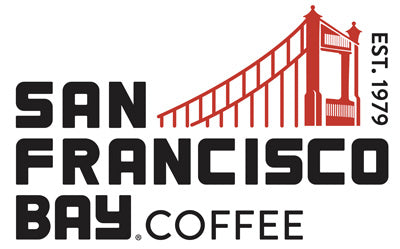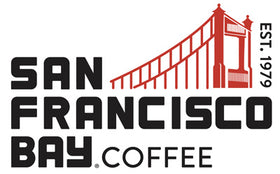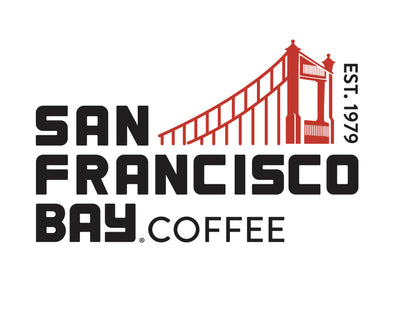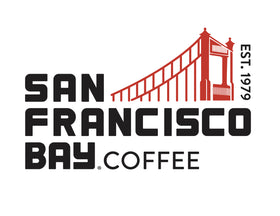K-Cups to Commercially Compostable Coffee Pods: The History and Evolution

Even small daily habits, like brewing coffee, can be meaningful parts of sustainable living. The coffee pod, once a symbol of convenience, has made giant strides towards eco-friendliness, with fully compostable options holding the gold medal. With millions of people using single-serve coffee brewers every day, it’s crucial to reduce the environmental impact these products have. From the early days of K-cups in the 1990s to the rise of compostable coffee pods today, here’s how the coffee industry has taken steps towards greener solutions.
What are K-cups?

K-cups are single-serve coffee pods designed for Keurig brewers and were introduced to simplify the coffee-making process. Each pod contains pre-measured coffee grounds and a filter and is sealed in plastic to preserve freshness. Introduced as a quick and easy solution for busy mornings, K-cups quickly became a staple in homes and offices. The simplicity of popping a pod into a Keurig brewer and getting a fresh cup of coffee in seconds was an irresistible innovation. However, the plastic in K-cups has raised significant environmental concerns, mainly due to the difficulty of recycling and their contribution to plastic waste in landfills.
The History Behind K-Cups
Keurig introduced K-cups in the 1990s, revolutionizing the way people brewed coffee at home and in the office. The convenience of single-serve brewing quickly caught on, and by the early 2000s, K-cups had become a household name. However, as the use of K-cups grew, so did the environmental impact. By 2015, it was reported that enough K-cups were sold to circle the Earth over ten times, highlighting the urgent need for more sustainable solutions.
How have coffee pods evolved?
Over the past decade, coffee pods have evolved significantly, with a growing focus on sustainability. Here’s how they’ve changed:
Recyclable Pods
As people became more aware of the environmental impact of K-cups, some manufacturers, including Keurig, began developing recyclable options. While this is a positive step, the recycling process for K-cups remains complicated. To recycle a pod, users must first take them apart–removing the foil lid, washing out the coffee grounds, and separating the plastic from the filter. This multi-step process often feels like a hassle, especially when compared to the convenience of simply discarding a used pod. Because of this, many recyclable pods still end up in landfills.
Reusable
Another innovation was the creation of reusable coffee pods. Consumers can fill these pods with their own coffee grounds, reducing single-use waste altogether. These pods are designed to be durable and are often made from stainless steel or BPA-free plastic. However, filling and cleaning these pods may be unappealing to those who want the convenience and simplicity of coffee pods.
Commercially Compostable Pods

Commercially compostable pods are the most exciting advancement in the evolution of coffee pods. Unlike traditional plastic pods, these are made from plant-based, renewable materials that can break down in commercial composting facilities. These materials are renewable and leave no toxic residue behind, making them a sustainable solution. San Francisco Bay Coffee’s OneCUP™ pods are a prime example of this innovation, providing an eco-friendly option without sacrificing the convenience of single-serve brewing.
While many but not all composting facilities accept these pods yet, the industry is steadily progressing toward more widespread acceptance, bringing us closer to a zero-waste coffee experience.
Discover OneCUP™ Commercially Compostable Coffee Pods

At San Francisco Bay Coffee, we take pride in leading the way for sustainable coffee solutions with our OneCUP™ pods. Made from plant-based, compostable materials, our OneCUP™ pods are BPI® certified, meaning they can be commercially composted in an industrial facility. With the right combination of heat, moisture, and oxygen, these pods safely decompose, nourishing the soil rather than contributing to plastic waste. In addition to reducing waste, these pods provide a guilt-free, eco-friendly way to enjoy your coffee.
While not all facilities accept BPI® certified compostable materials, you can find a local commercial composting site by visiting www.FindAComposter.com. We are also actively working toward achieving home compostable certification, so stay tuned for more updates on how you can compost your OneCUP™ pods right in your backyard.
Each OneCUP™ pod is made from cellulose (fiber/paper) and plant-based resources like cornstarch, sugarcane, and cassava. These pods do not contain petrochemical plastics and are free from major food allergens, making them both environmentally friendly and safe. Join us on our mission to make coffee taste good and do good, too.
Explore our shop to find your favorite coffee in OneCUP™ pods.



